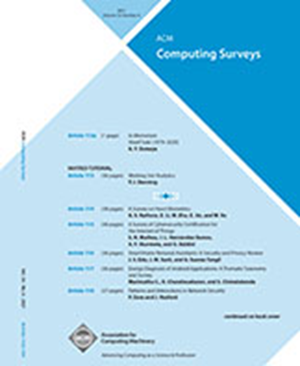A Survey on Deep Learning for Monte Carlo Path Tracing
IF 28
1区 计算机科学
Q1 COMPUTER SCIENCE, THEORY & METHODS
引用次数: 0
Abstract
Recent strides in hardware-accelerated ray tracing have propelled algorithms once deemed suitable only for offline rendering, like Monte Carlo path tracing, into interactive frame rates. While path tracing has been regarded as a practical utility in animating scenes for the film industry, achieving visually noise-free imagery often mandates thousands of samples per pixel and considerable computation time. Regrettably, this poses a difficulty for video games and virtual reality applications, which demand high frame rates and resolutions, thereby constraining the computational overhead of path tracing. Two extant approaches, in-process sampling, and post-processing reconstruction methods, i.e., denoising and upsampling, address this challenge. The giant evolution of deep learning technology has emerged as pivotal in path tracing processing. We explore and advance Monte Carlo path tracing technology based on deep learning. Moreover, we illustrate the merits and demerits of diverse designs and technologies, propose potential future development trends, and aim to provide researchers with a comprehensive understanding of the cutting-edge in deep learning-driven Monte Carlo path tracing.蒙特卡罗路径跟踪的深度学习研究综述
最近在硬件加速光线追踪方面取得的进展推动了曾经被认为只适用于离线渲染的算法,如蒙特卡罗路径追踪,进入交互式帧率。虽然路径跟踪被认为是电影行业动画场景中的实用工具,但实现视觉上无噪声的图像通常需要每像素数千个样本和相当长的计算时间。遗憾的是,这给视频游戏和虚拟现实应用带来了困难,这些应用需要高帧率和分辨率,从而限制了路径跟踪的计算开销。现有的两种方法,过程中采样和后处理重建方法,即去噪和上采样,解决了这一挑战。深度学习技术的巨大进化已经成为路径跟踪处理的关键。我们探索并推进了基于深度学习的蒙特卡罗路径跟踪技术。此外,我们还阐述了各种设计和技术的优缺点,提出了潜在的未来发展趋势,旨在为研究人员提供对深度学习驱动的蒙特卡罗路径跟踪的前沿的全面了解。
本文章由计算机程序翻译,如有差异,请以英文原文为准。
求助全文
约1分钟内获得全文
求助全文
来源期刊

ACM Computing Surveys
工程技术-计算机:理论方法
CiteScore
33.20
自引率
0.60%
发文量
372
审稿时长
12 months
期刊介绍:
ACM Computing Surveys is an academic journal that focuses on publishing surveys and tutorials on various areas of computing research and practice. The journal aims to provide comprehensive and easily understandable articles that guide readers through the literature and help them understand topics outside their specialties. In terms of impact, CSUR has a high reputation with a 2022 Impact Factor of 16.6. It is ranked 3rd out of 111 journals in the field of Computer Science Theory & Methods.
ACM Computing Surveys is indexed and abstracted in various services, including AI2 Semantic Scholar, Baidu, Clarivate/ISI: JCR, CNKI, DeepDyve, DTU, EBSCO: EDS/HOST, and IET Inspec, among others.
 求助内容:
求助内容: 应助结果提醒方式:
应助结果提醒方式:


